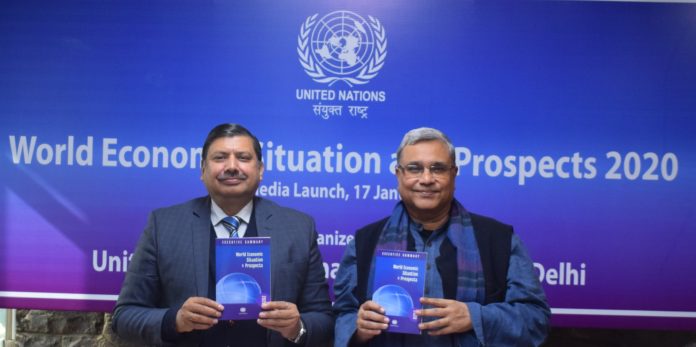“After experiencing a sharp economic slowdown from 6.8 per cent in 2018 to 5.7 per cent in 2019, India has committed to an ambitious fiscal expansion to complement the country’s already loose monetary policy,” said the UN’s World Economic Situation and Prospects (WESP) 2020 report.
It states that the GDP growth in India and few other large emerging countries may gain some momentum this year after the global economy recorded its lowest growth of 2.3 per cent in 2019 due to prolonged trade disputes.
However, the report has pegged the India GDP growth estimate for 2020-21 at 6.6 per cent, lower than 7.4 per cent estimated earlier by the WESP.
The report has also forecast a 6.3 per cent GDP growth for India for fiscal year 2021-22.
“Growth in South Asia is projected to rebound in 2020, but the region will continue to face daunting challenges to sustainable development,” says the report.
While global growth of 2.5 per cent in 2020 is possible, the report cautions that a flareup of trade tensions, financial turmoil or an escalation of geopolitical tensions could derail a recovery. In a downside scenario, global growth would slow to just 1.8 per cent this year, it says.
A prolonged weakness in global economic activity may cause significant setbacks for sustainable development, including the goals to eradicate poverty and create decent jobs for all. At the same time, pervasive inequalities and the deepening climate crisis are fueling growing discontent in many parts of the world, according to the report.
With regard to South Asia, the report says the economic growth in the region is forecast to recover to 5.1 per cent in 2020, after falling to a decade-low of 3.3 per cent in 2019, but it will remain well below the rates seen in the recent past. The region struggled in 2019 with a combination of external headwinds, notably the global economic slowdown and falling trade, and country-specific domestic challenges. As the effects of one-off shocks wane and governments respond with vigorous fiscal expansion, economic activity will rebound in most of the countries, the UN study says.








